Is it possible to own an all-electric car in India in the near future? With the ever-growing concerns about environmental sustainability and the need to reduce carbon emissions, the prospect of embracing electric vehicles (EVs) has become an increasingly pressing topic of discussion.
In this article, we will delve into the current state of the electric car market in India and explore the promising future it holds for environmentally-conscious consumers.
Will it be feasible to own an all-electric car in the near future in India?
Yes, it is certainly possible to own an all-electric car in India in the near future. The Indian government has set ambitious targets for electric vehicle (EV) adoption, and a number of factors are driving the growth of the EV market in India.

- Government support: The Indian government has been providing a number of incentives to promote EV adoption, such as subsidies, tax breaks, and free charging. These incentives have made EVs more affordable and have helped to reduce the upfront cost of ownership.
- Growing EV infrastructure: The number of EV charging stations in India is growing rapidly. As of September 2023, there are over 5,000 public EV charging stations in India. This number is expected to grow to over 25,000 by 2025.
- Increasing EV choices: The number of EV models available in India is increasing rapidly. A number of Indian and global automakers are now offering EVs in India. This is giving consumers more choice and is helping to drive down prices.
- Rising fuel prices: The rising cost of fuel is making EVs a more attractive option for consumers. EVs are significantly cheaper to run than gasoline or diesel vehicles.
As a result of these factors, the EV market in India is expected to grow rapidly in the coming years. By 2030, it is estimated that there will be over 30 million EVs on the road in India.
- Tata Tiago EV:
The Tata Tiago EV is one of the most affordable electric cars available in India. It has a range of 315 km on a single charge and can be charged from 0 to 80% in just 57 minutes. The Tiago EV is powered by a 24 kWh battery pack and produces 74 bhp of power and 114 Nm of torque.
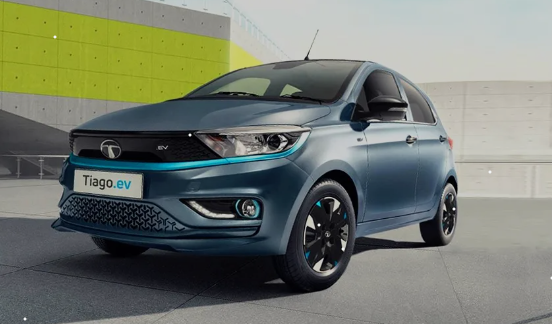
- MG ZS EV:
The MG ZS EV is a popular choice for those looking for a stylish and practical electric SUV. It has a range of 419 km on a single charge and can be charged from 0 to 80% in just 50 minutes. The ZS EV is powered by a 44.5 kWh battery pack and produces 141 bhp of power and 353 Nm of torque.
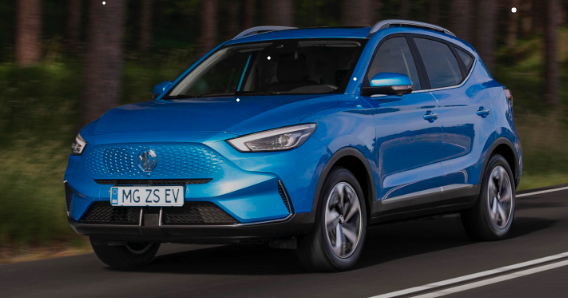
- Hyundai Kona Electric:
The Hyundai Kona Electric is a well-rounded electric SUV that offers a good balance of range, performance, and features. It has a range of 452 km on a single charge and can be charged from 0 to 80% in just 57 minutes. The Kona Electric is powered by a 39.2 kWh battery pack and produces 134 bhp of power and 395 Nm of torque.

- Mahindra XUV400: The Mahindra XUV400 is a stylish and spacious electric SUV that is perfect for families. It has a range of 456 km on a single charge and can be charged from 0 to 80% in just 50 minutes. The XUV400 is powered by a 39.4 kWh battery pack and produces 150 bhp of power and 310 Nm of torque.

Kia EV6:
- The Kia EV6 is a premium electric SUV that offers a luxurious and comfortable ride. It has a range of 528 km on a single charge and can be charged from 0 to 80% in just 18 minutes. The EV6 is powered by a 77.4 kWh battery pack and produces 320 bhp of power and 605 Nm of torque.
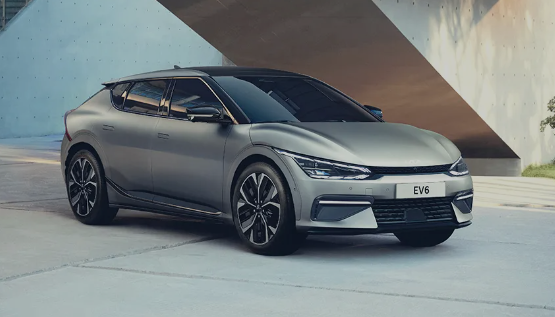
- BMW iX:
The BMW iX is a flagship electric SUV that offers the latest in technology and luxury. It has a range of 631 km on a single charge and can be charged from 0 to 80% in just 31 minutes. The iX is powered by a 111.5 kWh battery pack and produces 516 bhp of power and 765 Nm of torque.

- Mercedes-Benz EQC:
The Mercedes-Benz EQC is a luxurious electric SUV that offers a refined and comfortable ride. It has a range of 471 km on a single charge and can be charged from 0 to 80% in just 40 minutes. The EQC is powered by an 80 kWh battery pack and produces 402 bhp of power and 760 Nm of torque.
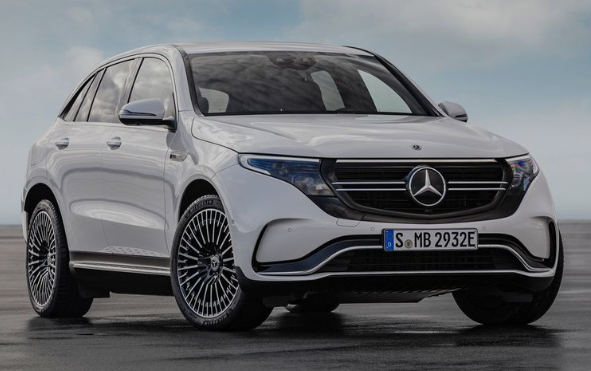
- Audi e-tron GT:
The Audi e-tron GT is a high-performance electric sedan that offers exhilarating driving dynamics. It has a range of 488 km on a single charge and can be charged from 0 to 80% in just 22 minutes. The e-tron GT is powered by a 93.4 kWh battery pack and produces 530 bhp of power and 630 Nm of torque.

- Porsche Taycan:
The Porsche Taycan is a high-performance electric sedan that offers stunning acceleration and handling. It has a range of 484 km on a single charge and can be charged from 0 to 80% in just 22 minutes. The Taycan is powered by a 93.4 kWh battery pack and produces 530 bhp of power and 640 Nm of torque.
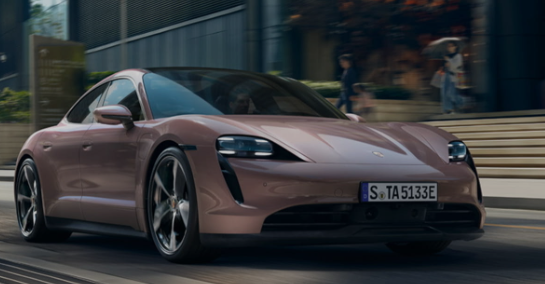
The popularity and growth of electric cars in India have witnessed a noticeable upsurge in recent years. Several factors contribute to the increasing interest in electric vehicles (EVs) in the Indian automotive market:
1. Changing Consumer Perception: Indian consumers are becoming more environmentally conscious, and they are recognizing the long-term benefits of electric cars, including reduced air pollution and greenhouse gas emissions.
2. Rising Fuel Costs: The increasing cost of traditional fossil fuels has made electric cars an attractive alternative for those seeking cost-effective and sustainable transportation options.
3. Government Initiatives: The Indian government has taken significant steps to promote electric mobility. Subsidies, incentives, and favorable policies, such as the Faster Adoption and Manufacturing of Hybrid and Electric Vehicles (FAME) scheme, have encouraged the adoption of electric cars.
4. Improving Charging Infrastructure: The expansion of charging infrastructure, including both public and private charging stations, has alleviated range anxiety and made EVs a more practical choice for daily commuting.
5. Collaborations and Investments: Various automakers, both domestic and international, are investing in electric vehicle technology and manufacturing in India. These collaborations and investments have resulted in a broader range of electric car models.
6. Reduced TCO (Total Cost of Ownership): Many consumers are realizing that while the upfront cost of electric cars may be higher, the lower operating and maintenance costs make them financially viable in the long run.
7. Awareness Campaigns: Manufacturers, environmental organizations, and government bodies have conducted awareness campaigns and educational initiatives to inform consumers about the benefits of electric cars.
8. Market Competition: Increased competition among automakers has led to more affordable electric car models with better features, further enhancing their appeal.
9. Clean Energy Adoption: The growth of renewable energy sources, such as solar power, is aligning with the push for electric vehicles, as they are considered a cleaner and more sustainable combination.
10. Urban Policies: Some cities in India have implemented policies to restrict the use of polluting vehicles, which has encouraged the adoption of electric cars in urban areas.
| Challenges to Electric Car Adoption in India | Description |
| A. Infrastructure limitations (Charging stations) | Limited availability of charging stations, hindering convenient charging for EV owners. |
| B. Cost and affordability | Higher upfront cost of electric cars compared to conventional vehicles, impacting affordability. |
| C. Range anxiety and battery technology | Concerns about limited driving range on a single charge and the need for further advancements in battery technology to enhance range and efficiency. |
Conclusion:
Electric car adoption in India is on the rise, driven by changing consumer attitudes, government support, and a growing focus on sustainability. While challenges like charging infrastructure, cost, and range anxiety exist, the positive trends and initiatives in the electric vehicle sector indicate a promising future for eco-friendly transportation in the country.
As technology advances and infrastructure improves, electric cars are expected to become an increasingly practical and popular choice for Indian consumers.

I’m Farhan Hakeem, a passionate automotive enthusiast and the driving force behind . With a deep-rooted love for cars and an unquenchable curiosity about the world of automobiles, I’ve embarked on a journey to share my insights, experiences, and opinions through this platform.
From a young age, the mesmerizing blend of artistry and engineering that cars embody captivated my imagination. Over the years, I’ve honed my understanding of automotive technology, design, and trends, which I now channel into creating engaging and informative content.
